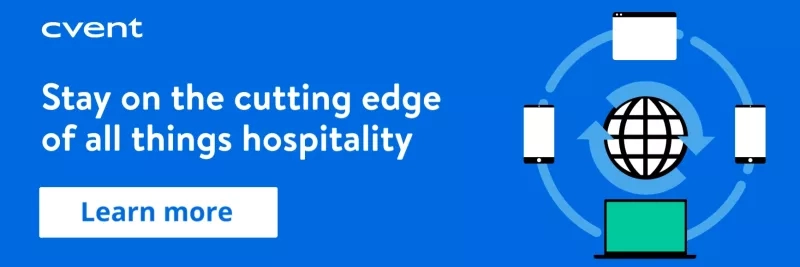
The hotel industry is back in full swing as travel demand grows, closing in on pre-pandemic levels. The American Hotel and Lodging Association estimates that average hotel occupancy levels will reach 63.8% in 2023, just two points shy of 2019, but demand isn’t the only shifting trend in hospitality. Guest preferences have also changed, with more travelers preferring digital and contactless communication than ever before. In this post, we examine why guest communication is so important and how you can enhance it with hotel guest communication tips and actionable best practices.
Hotel guest communication tips every hospitality pro should know
If you’re looking for ways to improve your hotel’s relationship with guests, you’ve come to the right place. From day-to-day policies to general best practices, we’ve compiled a list of hotel guest communication tips you can use to champion more meaningful, memorable interactions. Improve consumer relations and guest satisfaction scores with these helpful pieces of advice.
1. Be authentic
Don’t try to be something you’re not, but ensure the hotel meets all the expectations you created for prospective guests. If you advertise luxury hotel services or a five-star customer experience, guests should feel catered to from their first interaction with hotel staff. Whether meeting a new guest at the valet station or the concierge desk, offer a warm but formal greeting and prepare to provide exceptional service, going above and beyond to fulfill visitors’ desires. At budget-friendly and boutique hotels, guests typically expect friendlier, more personal conversations with hotel staff. Employees can express themselves, crack jokes, and engage guests more directly.
The relationship between customer engagement, brand authenticity, and brand experience impacts the level of authenticity consumers grant your hotel. If guests perceive the hotel as authentic, they are more likely to book a reservation and remain engaged throughout their stay. In an increasingly competitive industry, providing an engaging and authentic experience can set your hotel apart.
While remaining true to the brand is vital, don’t forget to be true to yourself. Foster more authentic hotel guest communication by letting your personality shine through. Listen well, empathize with customers, and respond to hotel guests sincerely. Consumers are savvy, and they can spot insincerity a mile away. A lack of authenticity can cause guests to turn away from your hotel, so when you apologize, mean it.
2. Be specific
Use simple, clear, and correct language when speaking with visitors or staff to strengthen hotel guest communication. If you need to, take a second to think about what you’ll say before responding. This can help ensure you don’t skip over crucial details or problem-solving steps.
Avoid using vague language like “maybe” or “soon,” and instead provide guests with a specific outline of what comes next. For example, if a guest encounters dirty linen in their room, thank them for informing you of the issue, acknowledge the hotel’s responsibility, apologize for the oversight, and tell the guest what comes next.
Instead of responding, “Sorry about that, we’ll send fresh towels up soon,” try a more specific response. Consider your reply before providing a detailed, personalized response such as, “Thank you for letting us know, Mrs. Brown. I want to assure you that every room is cleaned thoroughly between guests. However, I understand how disconcerting that must feel, and we want to rectify the problem immediately. I’ll notify the housekeeping department and get fresh towels sent up right away. Would it be alright if a team member came by in 10 minutes? Do you need them sooner?”
3. Make it personal
Practice personalized communication techniques to help guests feel seen, heard, and valued. Put yourself in consumers’ shoes. What would you want in a hotel if you were traveling for business? What about a vacation? Design marketing campaigns for specific market segments to appeal to different types of hotel guests and what they want. Take note of particular guest characteristics, such as their room preferences or reason for travel, to create more personalized, memorable guest experiences.
Encourage guests to create individualized traveler profiles through a branded rewards program (e.g., Hilton Honors) or the hotel’s mobile app. Enable travelers to specify room type preferences, list allergies, make special requests, and more. While you may not always be able to accommodate guest requests, personalized profiles help staff identify who guests are and what they want from a hotel.
4. Respond promptly
When consumers reach out to a business, they anticipate a timely response. As technology enables hotels and their guests to communicate faster, employees should prepare to respond to guests promptly and professionally. 77% of Forrester survey respondents stated that valuing their time is one of the best things companies can do to drive customer loyalty. However, guest expectations vary by channel, with consumers expecting a quicker response through some communication channels than others.
Response time can also affect how well your property ranks in search engine results and on particular social media platforms. Facebook bestows badges to pages with the fastest response time, showing consumers which hotels or venues respond to 90% of messages in less than 15 minutes.
If your hotel offers hotel texting, direct messaging, or chat services, customers will expect to receive a response between a few minutes and a couple of hours, as is typical for those channels. Try to respond to weekday emails within 24 hours and weekend communications by the next business day. Delegate guest communication duties and create a master checklist to ensure that all emails, reviews, social media comments, posts, photos, and direct messages receive an attentive response.
5. Learn more from guest reviews
Regularly read and respond to guest reviews to identify trends, repeat issues, and unresolved guest complaints. Some guests are uncomfortable complaining face-to-face; they may choose to leave a review of their experience after checking out instead. Hotels that fail to read and respond to guest reviews consistently may miss out on valuable information or turn guests away without knowing why. Additionally, responding to feedback can help generate more of it. Venues that frequently respond to guest reviews receive an average of 12% more than those that don’t, which can increase ratings and boost your online presence.
6. Open multiple communication channels
People have distinctive styles and preferred means of communication. While some consumers like to speak with hotel staff directly, others may want to talk digitally—via text or direct messages (DMs). Connect with as many consumers as possible by opening every communication channel at your disposal, including:
- In-person. Speaking with employees face-to-face is one of the fastest and easiest ways for guests to communicate with the property, and it should be easy for hotel guests to find assistance when needed. A fully staffed hotel helps guarantee that any guest issues, questions, or concerns are addressed promptly and professionally. If you notice visitors wandering the property looking for assistance, it’s time to review hotel guest communication policies and retrain staff.
- Hotel website. Make it easy for any consumer who finds your website to contact the hotel for a booking. Display clear and accurate contact information directly on the hotel’s main website. Provide your physical address, phone number, email, and helpful external links, like social media pages or review sites.
- Email. If you don’t have one already, set up a hotel-specific email account managers can access, read, and use for guest communication. Guests and planners may want to contact the hotel to check room availability, group rates, meeting space packages, or similar parameters, and having a designated email account makes it easy for them to do so at any time.
- Social media. Social media platforms like Instagram and TikTok are reshaping the hospitality industry. With the ability to instantly share trip photos, research exotic locations, and virtually tour some of the most incredible destinations in the world, social media has enabled travelers to discover new and exciting places. These platforms also allow hotels to communicate with guests through live polls, direct messages, posts, comments, and other tools. Numerous platforms also enable hotels to integrate their reservation systems, making it possible to book a room right from the hotel’s social media profile.
- Text messaging. As travel demand has risen, many hotels have opened new guest communication channels to capture more business. Hotel text messaging has made a big splash on the hospitality scene and is one of the biggest hotel marketing trends to watch in 2024. Add text messaging services to your property’s existing landline, which sets up your current phone number to send and receive texts without disrupting regular call services.
- Hotel mobile app. Stay connected with past, present, and future guests through your hotel’s mobile app. Send reservation reminders, personalized promotional offers, and more.
Whether staying at the hotel, attending an event, or shopping online, it should be easy for customers to reach you. Determine which booking channels various hotel market segments prefer and ensure it’s easy to contact the property via each channel.
7. Harness the power of technology
In addition to the direct and indirect booking channels listed above, guest communication software can help hotels stay in touch with customers. There are various software systems available that hotels, event venues, and other lodging partners can use to help facilitate and streamline guest communication, including:
8. Empower your staff
Staff should be able to function as if they were in the presence of a manager, even when leaders are off-property. Hotel managers can’t be accessible 24/7, but adequate training and detailed standard operating procedures (SOPs) can help staff navigate guest complaints, requests, and other guest communications in management’s absence.
Provide hotel staff with the resources and training they need to communicate with guests effectively. Create a standard set of guidelines and appropriate responses employees can refer to for assistance managing a particular situation or guest conversation. Empower employees with the freedom to use their training and critical thinking skills to address guest issues, but ensure support is available when needed.
Encourage employees to practice listening and responding to guest feedback in fun team competitions. Host team-building games and challenge staff members to identify guest complaints or pinpoint potential problems based on guest comments. Inspire employees from each department to develop unique, out-of-the-box solutions designed to leave guests satisfied and smiling.
9. Create communication touchpoints
A cadence of regular communication between a hotel and its guests can help build a relationship of trust, reliability, and familiarity. Contact guests early in their booking journey and establish a regular cadence of communication you maintain throughout their stay. Use various communication methods such as hotel text messages, emails, and in-room notecards to ensure guests feel attended but not overwhelmed. Confirm visitors have everything they need to enjoy their stay, including space to relax and unwind.
Don’t bombard guests, but keep in touch with them before, during, and after their stay. Prior to check-in, reach out to guests with their reservation details and a thoughtful message to generate excitement for the trip ahead. Greet guests upon arrival and ask what brings them to town. This will give your team a better idea of what their needs and expectations are—and how to exceed them. If they’re new to the hotel, pass along pertinent details, like Wi-Fi login instructions, directions to their room, and restaurant operating hours.
Reaching out to guests during their stay can help staff catch issues early, giving your team plenty of time to turn things around and send guests home happy. Room attendants can oversee the next touchpoint by leaving a personalized note in each room during stayover service. In the note, thank guests for selecting your hotel and ask if everything meets their expectations. Invite them to reach out if they need anything or include a comment about their stay in the available space.
After guests depart, keep the lines of communication open by following up with a billing summary email and customer feedback survey. Surveys can help identify hiccups in the booking process, hotel procedures that need refining, and staff training opportunities.
Common hotel guest communication errors and how to avoid them
Finding the right way to communicate with hotel guests isn’t always easy, but the more you practice, the more natural it feels. Whether you’re new to the hospitality industry and wondering what’s in store or an experienced manager seeking new hotel guest communication tips, start by avoiding these common mistakes.
- Failing to listen. Hearing and listening are not the same things; failing to actively listen to guests (whether they’re upset or looking to spark up a friendly conversation) could cause the hotel to overlook important clues or hints that indicate the guest’s satisfaction level.
- Setting the wrong tone. One bad move can set the tone for a bad hotel stay. Encountering a cold lobby, a frustrating check-in process, or disengaged employees could impact guests' satisfaction levels upon arrival, coloring the rest of their time at your hotel. Create a warm, welcoming atmosphere so every stay starts on the right foot. Help employees become more comfortable communicating with guests by practicing the 10:5 rule. The 10:5 rule says employees should smile and make eye contact when within 10 feet of guests and verbally greet them within five feet.
- Choosing the wrong words. Poor word choices can lead to miscommunications and cause complications busy hotels don’t need. Pay close attention to your word selection and phrasing. Consider the tone they might convey to listeners.
- Sending too many or mixed messages. Striking a balance between overwhelming and ignoring guests can be a challenge. You don’t want to annoy guests by reaching out constantly, so dictate which team or department will connect with guests at distinct points in their stay. Create communication touchpoints that are timely and relevant to help hotel staff measure and raise guest satisfaction levels.
- Getting distracted. In a busy lobby, dozens of conversations, interactions, and activities may be happening around you at once. Distractions are everywhere, but strong hotel guest communication requires attentive listening—no matter what happens. Work with hotel staff to improve situational awareness and active listening skills so they can show guests the attention they deserve while keeping one eye on everything else around them.
- Waiting until the last minute. Don’t wait until guests are right in front of you to communicate with them for the first time. Set the stage for an open, welcoming, and communicative stay with a pre-arrival email, reminder text, or personalized message in the app. When guests arrive, be proactive; speak to them before they speak to you.
How can hotel employees appear more confident and welcoming?
Standing straight and tall is an uncomplicated way to feel and project more confidence. Encourage employees to display confidence with their posture, using their body language to create a warm, welcoming hotel environment. Avoid crossing your arms, which can make you look closed off. Smile and make eye contact with guests. This illustrates that you’re available to help them if they’d like assistance without crowding the guest.
Put these hotel guest communication tips to good use
Now that you have a list of hotel guest communication tips ready to go, you can start building better customer relationships. Learn how personalized hotel marketing can help strengthen consumer bonds and drive more travelers to your property.








